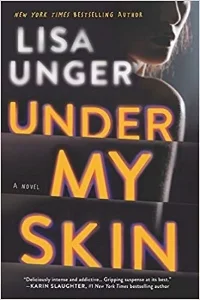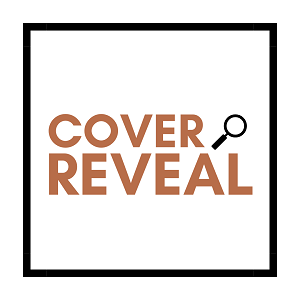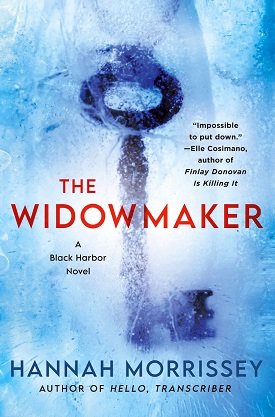Bouchercon Author Interview: Lisa Unger
Author of Under My Skin
Are there any authors on your TBR that you just can’t believe you haven’t read yet? That’s how I feel about Lisa Unger. I’ve been fortunate enough to meet Lisa at a number of crime fiction conferences now; I’ve heard her speak on panels, I’ve read glowing reviews of her books, and I’ve listened to some of my best bookish friends rave about her work, too. So when I discovered that Lisa would also be at this year’s Bouchercon conference, I knew it was the perfect time to learn a bit more about her work—and to finally put one of her books on my fall reading list, too! I had an absolute blast chatting with Lisa about all things crime writing at Bouchercon, and I’m so excited to share our conversation with CBTB readers today. If you haven’t yet read Lisa Unger, consider this your “Lisa Unger 101” - and if you’re already one of Lisa’s myriad fans, consider this your chance to get a little behind-the-scenes glimpse into the writing life of one of America’s foremost female crime writers.
Bonus: Lisa has a new psychological thriller releasing in just a few days! UNDER MY SKIN releases October 2nd, and promises a twisty, addictive story of lost memories, paranoia, and a woman on the hunt for her husband’s killer. You can learn more about UNDER MY SKIN in this interview - and scroll to the very bottom of this post for additional details on the newest book by Lisa Unger!
Many thanks to Lisa for taking the time to speak with me at Bouchercon, and to her publisher for facilitating this interview!
Bouchercon Author Interview: Lisa Unger
Crime by the Book: For CBTB readers who are not already familiar with your work, could you give us a big-picture overview of it?
Lisa Unger: I have 16 novels of psychological suspense. My first four books featured a true crime writer by the name of Lydia Strong, and that was a series that I started when I was 19 years old! After those first four novels, I started writing about Ridley Jones - so that was BEAUTIFUL LIES, which published in 2006. And that book was inspired by a piece of junk mail that I got - one of those flyers with an ad on one side, and on the other side was an age-graduated photo of a missing child. And I looked at that and thought, “what if I got this in the mail and looked at it, and I recognized myself?” That was the germ for BEAUTIFUL LIES. Then I wrote a couple standalones, and then I wrote a book called FRAGILE. And in FRAGILE, I stumbled into the town of The Hollows, which became my fictional town. It has sort of chain-linked a lot of the books that follow, with the exception of the last two - THE RED HUNTER and UNDER MY SKIN. The Hollows always has a little cameo in all my books, so people who have been reading from the beginning always get a little taste of that world back! It’s not a series exactly, but everything is kind of connected. I also have a novella called WHISPERING HOLLOWS, and those three short stories actually fit in between the books. It’s completely nuts! But that’s the way the story told itself. But I always tell everyone you can drop in anywhere - everything is self-contained. But if you really wanted to read in the order I want you to read it, there’s a guide on my website about The Hollows!
CBTB: That’s so cool! That’s really unique to me. I don’t read science fiction or fantasy, but when I think of those genres I associate them with the concept of world-building - but that’s not typically something I associate with crime fiction. But it sounds like you’re doing that too!
LU: Yeah! When I fell into The Hollows in FRAGILE, I didn’t think that much of it. It felt to me like any town - like the place where nothing bad ever happens. But of course, that’s no place, because bad things happen everywhere. And then over the series of books, it started to assert itself as a character and take on a personality. It had an agenda, it had secrets, it encouraged paths to cross. It’s not necessarily a malicious agenda, but it’s questionable. We’re not sure what The Hollows actually wants.
CBTB: Is there a supernatural element to The Hollows?
LU: There is a slight supernatural element to it, in that at the end of FRAGILE, another character that I met in the writing of that book was a psychic. So when she turned up I was like “oh, a psychic, that’s interesting!” Even if she turns out to be a fraud, it’s still interesting. So then when I ended that book, I was disappointed - I thought she would have a big role to play, but she didn’t. I became more concerned with another character. So the next book naturally evolved from that place.
“What’s always driven me is that I have this insatiable curiosity about the human psyche. If ever there were a mystery, that’s it: what makes us who we are?” - Lisa Unger
CBTB: The way you’re talking about your characters, it sounds like they are people with their own agendas. Do you find that they surprise you?
LU: Absolutely. I never expect any of them to do anything that they do! I write without an outline, I don’t know who’s going to show up day by day. I don’t know what they’re going to do. I usually have a voice, or a couple of voices, that I follow through the manuscript. But I write for the same reasons I read - because I want to know what happens.
CBTB: If you started writing at nineteen years old, was this something that you knew even from childhood? To have a career as a writer?
LU: Yes. I was always a writer, and my mom is a librarian. My dad is an engineer, so he was basically like “get a job!”, so I went into publishing. I was in publishing for 10 years! I was a book publicist. I was always a closet writer, but I didn’t really talk about it. It was always my passion - I always knew I was a writer. But then my job kept getting bigger and bigger, and the time I spent writing got smaller and smaller, until I wasn’t really writing at all. I had started that book when I was 19, but it petered out. Then I had this epiphany where I realized wait, everything in my life is wrong. I was devoting my time and energy to the wrong thing, and I realized I had to get serious and start writing every day, otherwise I would look back and regret that I had never tried. That’s when I got serious about writing as a career. A lot of people have these creative goals early on, but then you always have that voice in your head telling you to be practical and realistic - and it is really hard to build a creative career, but sometimes we abandon it rather than even trying. And you don’t have to pursue your creative passion as a career necessarily, but it remains important even if it’s not your career - even if it’s just something you do for yourself. Keeping that thing you love is critical for your life.
CBTB: As you mentioned before, you’ve written sixteen novels. How do you keep things fresh and exciting? How do you keep finding new material to keep exploring?
LU: What’s always driven me is that I have this insatiable curiosity about the human psyche. If ever there were a mystery, that’s it: what makes us who we are? So I tend to think to myself, for example, every single person in this room has a story. And every story is completely different from every other story. So how could there ever be any dearth of things to write about? And most of my novels usually spring from a particular question I have, something I’m curious about. I’ll have this kind of “shazam” moment where I have an idea or question. And then I spend a bunch of time doing research. And if that research connects to the question I’m grappling with, I start hearing voice from there. And then I follow that voice. For every book book I’ve written, I can point to the particular moment that inspired it, and to the research that backed up that inspiration and led to the book. I remember the exact questions or issues I was grappling with in my personal life that inspired each book.
CBTB: It sounds like your books are so personal. You’re not outlining, the ideas come to you organically - do you find a lot of your own life reflected in your stories too?
LU: I do. And, you know, the process is weirdly subconscious. Sometimes I’ll go back and read things and I don’t remember writing them. It’s like it comes from a different part of my brain. So the person that sits down at the computer to write is not the person who gets up and goes to pick my daughter up from school.
CBTB: You really were made to be a writer! So what kind of research, in particular, goes into your novels?
LU: There are a lot of different layers to research for me. A lot of times, the books spring from my experiences - so it’s almost like the research inspires the book in a certain way. For example, I went to Prague once, and I was supposed to not be writing. But I was so inspired by Prague that I started writing a book set partially in Prague! I may or may not run into the stone wall of my own ignorance while I’m writing, and that will lead me to a swath of research. I’m also just an information junkie. I read a lot of nonfiction, a lot of psychology books (I’m obsessed with Carl Jung!), and then there are a couple different layers to research as well. Sometimes you need to know something simple, and you might just Google search it. But sometimes you need a deeper understanding of something, and then you look for other sources - you might even need to find an expert on the topic and talk with them. That could be anything from FBI agents to clinical psychiatrists to ghost hunters.
“I write for the same reasons I read - because I want to know what happens.” - Lisa Unger
CBTB: Wait a second - did you do research with ghost hunters? What was that like?
LU: I did! And it wasn’t even real research. I just heard about this woman - and I tend to do this, when I hear about someone doing something unique - I wrote to her and asked her to coffee just to chat about her job. She was a full-on ghost hunter! It was incredibly interesting. Another example - the artist who did the Agatha Awards, I just went and hung out at her studios. I don’t have a character right now who’s going to be a sculptor, but who knows where that inspiration moment might come from. That’s why, when people wonder how I keep coming up with new ideas, I just think “how can you not?!”. Look around!
CBTB: You have a new book coming out in October - UNDER MY SKIN. I can’t wait to read it! Can you give us the quick pitch for it?
LU: Yes! It features a young woman by the name of Poppy Lang. She’s a widow. She’s a year past the unsolved murder of her husband, and, after a nervous breakdown, she has also lost a few days of her life surrounding his death. So she is in a bad place. She’s self-medicating, she’s grieving still, she’s kind of white-knuckling her way back to normal. But she’s been suffering from terrible nightmares, and then, possibly due to the fact that she’s been self-medicating, these nightmares start to ratchet up. And she is experiencing these sort of dark and startling “day-mares.” So as the story progresses, she starts to lose her very fragile grip on reality, and starts to have trouble differentiating what’s happening in her dreams and what’s happening in the real world. And meanwhile, there’s a dark figure in the shadows of her life, and she’s not sure whether he is real or not, if he had something to do with the murder of her husband, and if he’s now coming after her.
“Every single person in this room has a story. And every story is completely different from every other story. So how could there ever be any dearth of things to write about?” - Lisa Unger
CBTB: It sounds so good! I cannot wait to read it. I love stories that deal with lost time or these sorts of blurring of the lines…
LU: Me too! The initial germ for this story was a Carl Jung quote. He said “between the dreams of day and night, there is not so great a difference.” So there’s my ongoing obsession with Carl Jung! I started thinking about this quote, and began researching sleep and the brain. I discovered in my research that we spend 1/3 of our lives asleep. That’s more time than we spend doing anything else. And yet, we’re totally convinced that the waking world is the “real world,” and the sleeping world is the “dream world.” But what if it’s not? We have these big brains, and there is 97% of our brains that we don’t understand. It’s as vast and as unexplored as space. How can you not ask yourself questions about your reality and your perception? This has always fascinated me. I have another friend who is a former Navy Seal, and he works with veterans with PTSD. I had a talk with him, and he explained to me the progression of PTSD. It can start by altering your perception of reality, and then often sleep disturbances and nightmares, and usually some type of self-medication involved. And then because you become unstable, your support system can begin to unravel, and that alters your perception of reality. So it’s not just one thing - it’s a series of things. And this made me think how fragile our grip on reality really is, and how quickly it starts to break down when you are exposed to extreme trauma.
CBTB: Last but not least - since we are at Bouchercon right now, what are you most excited about at this year’s conference?
LU: I’ve been coming to Bouchercon for… forever. So it always feels like coming to a wedding! All my pals are here. I’ve been very blessed in my career to have these great relationships with people. This is a business of relationships - the people you work with and attend conferences with, they become your true friends. It’s hard because I’m an introvert - but once you’re here, it’s just great.
A huge thank you to Lisa Unger for taking the time to speak with me at Bouchercon 2018! You can learn more about Lisa’s forthcoming release UNDER MY SKIN below - and stay tuned for my thoughts on it this fall, too!
UNDER MY SKIN by Lisa Unger
Park Row | October 2, 2018
What if the nightmares are actually memories?
It’s been a year since Poppy’s husband, Jack, was brutally murdered during his morning run through Manhattan’s Riverside Park. In the immediate aftermath, Poppy spiraled into an oblivion of grief, disappearing for several days only to turn up ragged and confused wearing a tight red dress she didn’t recognize. What happened to Poppy during those lost days? And more importantly, what happened to Jack?
The case was never solved, and Poppy has finally begun to move on. But those lost days have never stopped haunting her. Poppy starts having nightmares and blackouts—there are periods of time she can’t remember, and she’s unable to tell the difference between what is real and what she’s imagining. When she begins to sense that someone is following her, Poppy is plunged into a game of cat and mouse, determined to unravel the mystery around her husband’s death. But can she handle the truth about what really happened?
Book Details:
Hardcover: 368 pages
Publisher: Park Row; Original edition (October 2, 2018)
Language: English
ISBN-10: 9780778308409
ISBN-13: 978-0778308409
Crime by the Book is a participant in the Amazon Services LLC Associates Program, an affiliate advertising program designed to provide a means for sites to earn advertising fees by advertising and linking to Amazon.com. This in no way affects my opinion of the above book.
















Home ownership feel like a distant dream? Zillow listings have you convinced you’ll be renting for the rest of your life? The woman at the heart of Carissa Orlando’s debut The September House feels your pain—and she’s prepared to put up with a lot if it means she and her husband can finally have a place to call their own. In this case, that might just mean living in a house that’s haunted. Playful and irreverent, spine-tingling and spooky, The September House puts a fresh spin on the classic haunted house story, delivering an immersive tale about the secrets lurking within one building’s walls, and within the lives of its inhabitants.